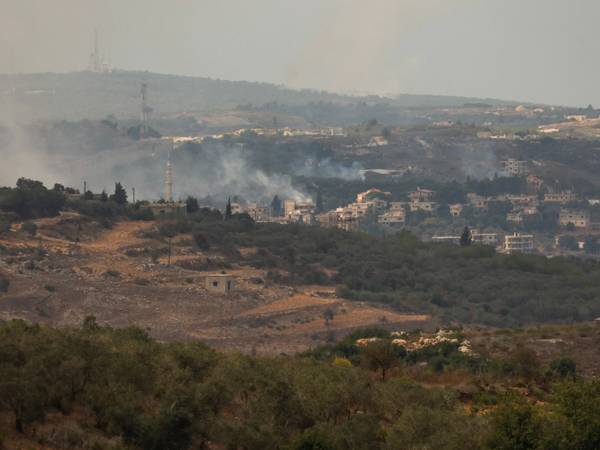Experts in Lebanon have called for international backing for the cash-strapped Lebanese Armed Forces if a ceasefire is to be sustained between Iran-backed Hezbollah and Israel.
While US envoy Amos Hochstein suggested a deal is within reach during his trip to Lebanon on Tuesday, the situation on the ground appears far more bleak.
“The army doesn’t even have money to put fuel in the patrol trucks,” said a senior Lebanese politician opposing Hezbollah. He spoke to Iran International on condition of anonymity after successive death threats from the group the US and others deem 'terrorist'.
“UNIFIL has no power militarily and it depends on the LAF [Lebanese Armed Forces], but mostly, the LAF isn’t even able to patrol with UNIFIL, which is a huge reason the latest conflict has escalated to this degree," he told Iran International.
UN peacekeeping forces, UNIFIL, were stationed around southern Lebanon since 2006 under UN Resolution 1701 after the second Lebanon war between Hezbollah and Israel.
Though first created in 1978, following the crisis of 2006 crisis, the UN Security Council strengthened the mandate of UNIFIL, allowing them to "monitor the cessation of hostilities; accompany and support the Lebanese armed forces as they deploy throughout the south of Lebanon; and extend its assistance to help ensure humanitarian access to civilian populations and the voluntary and safe return of displaced persons".
However, the politician, who has held senior government positions, warned that without international funding and binding agreements, the LAF risks remaining a “toothless tiger,” as evidenced in recent years.
“The Lebanese economy is in collapse and the army has been one of the biggest losers, which of course, impacts the country’s security at the hands of Hezbollah which has infiltrated every institution and border areas," he said.
Though Israel has severely weakened Hezbollah since it stepped up its offensive in September, it has a barrage of firepower that continues to see dozens of projectiles fired into Israel daily.
In September, targeted air strikes saw Israel take out swathes of the group’s leadership as high as long-time leader Hassan Nasrallah, while a two-day operation saw around 1,500 Hezbollah operatives taken out of action when pagers and walkie-talkies simultaneously exploded.
UN Resolution 1701 aimed to push Hezbollah north and disarm all armed groups in a designated area of southern Lebanon. However, this was never fully implemented, with both Hezbollah and Israel accused of violating the agreement. Additionally, other armed groups, such as Palestinian Islamic Jihad, continued to operate in the region.
Consisting of around 80,000 troops, the LAF has no air force and is not strong enough to take on either Hezbollah or an Israeli onslaught, its role being mostly limited to supporting civilians.
Speaking to the Financial Times last month, Sami Atallah, director of The Policy Initiative think-tank in Beirut said: “The Lebanese army has a different function than any other military … The army doesn’t have the resources to defend its territory. Rather it’s used to maintain domestic stability.”
If a ceasefire is put into place, the Lebanese army will be expected to deploy thousands of troops south in order to maintain peace. However, with Hezbollah still significantly more powerful and better funded by its patron, Iran, the process will not be easy.
"The Lebanese army is in a situation that is sensitive and difficult. It cannot practice normal missions like the armies of other countries because there is another military force in the country," retired Lebanese brigadier general Hassan Jouni told Reuters, referring to Hezbollah.
On Tuesday, LAF chief, General Joseph Aoun, presented proposals for the first phase of a deployment in the south, sharing the army’s needs in terms of armament, logistical and financial support.
In August, the Lebanese government, which is divided on sectarian lines amid years of crisis, issued “initial approval” for Prime Minister Najib Mikati’s proposal to recruit 1,500 new troops for the army, part of a plan prepared by the army to recruit 6,000 soldiers before developing a plan for its deployment.
Ultimately, the government will have to approve the exact nature of the deployment, but in the end, the question remains as to whether Hezbollah will respect its authority.
Hezbollah affiliated Al-Akhbar said there were still significant “knots” in the negotiations. Quoting informed sources, it said problems remained around borders, which it said was “the knot of knots”.
